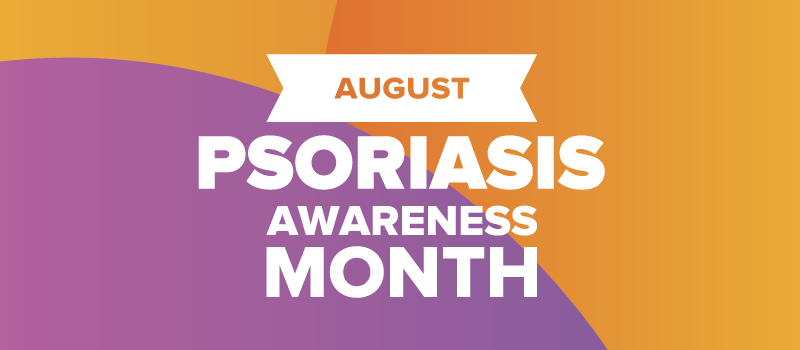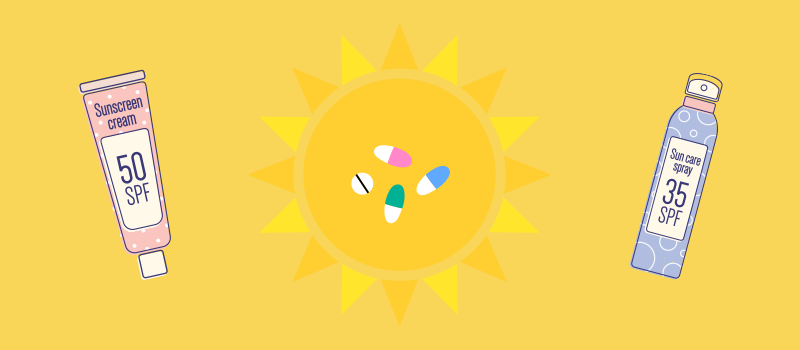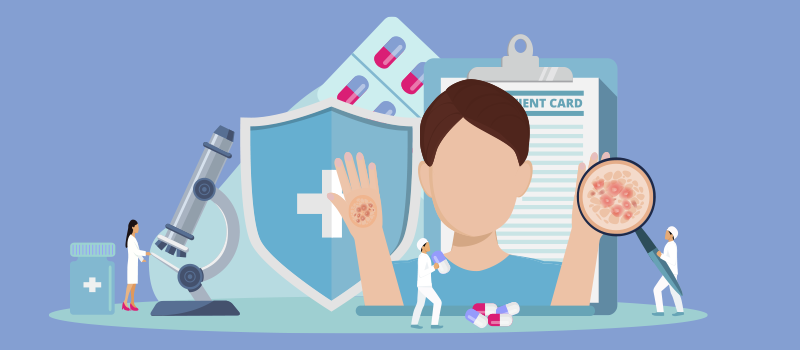What’s the Buzz
The Bee Healthy Blog
Psoriasis Triggers to Avoid

Psoriasis is a disorder of the immune system. In people with this condition, an overactive immune system triggers inflammation in the skin and other organs. Most people with psoriasis experience symptoms that come and go over time. The itchy patches of skin that are common in psoriasis can seem to flare up for no reason. But a closer examination may reveal one or more triggers.
By learning about the things that trigger psoriasis and managing them better, it is possible to gain better control of the disease and have fewer flares. If you or someone you know has psoriasis, continue reading to learn about some of the common triggers for psoriasis. This will help you figure out if one or more of them could be causing flares in you.
Foods that cause psoriasis flare-ups
There is no definitive link between diet and psoriasis. However, people with psoriasis often find that certain foods can cause a flare. The National Psoriasis Foundation recommends eating plenty of fresh fruits and vegetables, whole grains, healthy fats, and lean proteins (this is essentially called an anti-inflammatory diet). Foods that can cause psoriasis flare-ups and should be avoided include highly processed junk foods, nightshade plants like eggplant, tomato, white potato, and peppers, dairy products, red meat, shellfish, citrus fruits, gluten, and certain condiments. It is a good idea to exclude potential food triggers one at a time from your diet and wait a couple of weeks—this will make it easier to identify if a particular food is causing flare-ups.
Alcohol
Some studies suggest that psoriasis may be caused by drinking alcohol, particularly in women. Studies have also found that an alcohol habit can make pre-existing psoriasis worse. People who drink alcohol may find their symptoms are more severe and their flare-ups more frequent. Moreover, drinking alcohol can interfere with some drugs that are used to treat psoriasis, such as methotrexate. Therefore, people with psoriasis should avoid excessive alcohol consumption as this can make their disease more difficult to manage.
Smoking
Smoking tobacco or exposure to second-hand smoke can cause psoriasis flare-ups. Research suggests that smoking may increase the risk of palmoplantar psoriasis, a rare form of the disease. Stopping smoking and avoiding being around people who smoke can reduce the risk of flare-ups.
Obesity
Weight gain and obesity are known risk factors for psoriasis. People who are overweight and have psoriasis are more likely to have severe symptoms. Reducing calories in the diet and losing weight in overweight and obese patients can help to reduce disease severity.
Excess sun
A moderate amount of sun is beneficial for psoriasis. However, excessive sun exposure and sunburns can trigger a psoriasis flare. Also, spending time in air-conditioned environments during warm weather can cause flare-ups. If you live in a place with warm weather and must use air conditioning, you can reduce your risk of psoriasis flare-ups by using a moisturizer after showering and throughout the day whenever your skin feels dry.
Cold weather
Cold, dry weather in the fall and winter may cause a psoriasis flare-up. This is among the most common psoriasis triggers because it strips moisture from skin cells. Also, heating units may worsen psoriasis symptoms. If you find that your psoriasis flares are linked to a drop in temperature and humidity, it may be worthwhile investing in a good humidifier.
Stress
Mental stress is a well-known psoriasis trigger. That’s why, along with medication treatment, it is important that you make efforts to manage any stress in your life as much as possible. This can be accomplished by participating in activities like yoga and meditation or doing breathing exercises.
Medications
Some medications can cause psoriasis to flare up. Examples include beta-blockers and ACE inhibitors that are commonly used to treat high blood pressure. Before starting a new medication, remind your doctor that you have psoriasis and ask if the medicine could worsen psoriasis symptoms. Symptoms of psoriasis typically become worse 2-3 weeks after starting a medication. If this occurs, do not stop taking the medication without medical advice. Ask the prescribing physician if they can switch you over to something else.
Hormones
Studies have found that hormonal changes in women at various stages of life such as puberty, following childbirth, and menopause can cause psoriasis flare-ups. Conversely, high levels of certain hormones during pregnancy may make psoriasis symptoms better in some women.
Infections
A bacterial or fungal infection such as strep throat and thrush can trigger psoriasis. It’s important to get treated promptly if you suspect these infections. Less commonly, psoriasis may be triggered by viral infections like HIV.
Skin injury
Any kind of skin injury, such as scratches, insect bites, shaving cuts, tattoos, and piercings can lead to the formation of psoriatic lesions near the site of injury. Physical trauma can trigger psoriatic arthritis in people with a genetic tendency for this condition. Notably, skin injury does not cause psoriasis; however, it may trigger a psoriasis flare in people who already have the condition.
Managing psoriasis symptoms
It may not be possible for a person with psoriasis to avoid every single trigger, but with a little detective work and some planning, it is possible to prevent frequent flares and make it easier to manage this condition.
If you are struggling with identifying psoriasis triggers, getting medically examined by a board-certified dermatologist may help control your flares. The dermatologist may suggest some things to avoid or prescribe treatments that make it easier for you to live with psoriasis.
References:
1. https://www.aad.org/public/diseases/psoriasis/triggers/flares
2. https://jamanetwork.com/journals/jamadermatology/fullarticle/422554
3. https://onlinelibrary.wiley.com/doi/abs/10.1111/j.1365-4632.2011.05100.x
4. https://www.psoriasis.org/methotrexate/
5. https://www.jaad.org/article/S0190-9622(05)02299-1/fulltext
7. https://www.ncbi.nlm.nih.gov/pmc/articles/PMC3888685/











SOCIAL